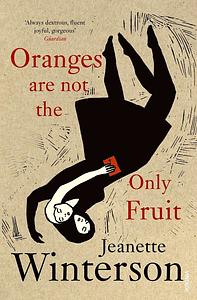You need to sign in or sign up before continuing.
Take a photo of a barcode or cover
challenging
dark
reflective
sad
medium-paced
Plot or Character Driven:
Character
Strong character development:
Yes
Loveable characters:
No
Diverse cast of characters:
No
Flaws of characters a main focus:
Yes
Interesting. Best way to describe how this book was for me. The quirk of the writing structure and style of humor took a huge amount of adjustment for me and I still can’t tell if it worked for me at all. The content was very poignant though and beautiful and incredibly personal and relatable to me. So on that front and on the topic of religious examination and exploring sexuality, I recommend this. However, I don’t know if I just wasn’t smart enough for some of the stories used as analogies in between what was going on with Jeanette, but the Camelot one was especially confusing. I found this whole book extremely interesting, but incredibly hard to truly “lose myself” in. I doubt I’ll reread this at any point, but I’m glad to have read it at all.
challenging
dark
emotional
mysterious
reflective
sad
medium-paced
Plot or Character Driven:
Character
Strong character development:
Yes
Loveable characters:
Complicated
Diverse cast of characters:
Yes
Flaws of characters a main focus:
Complicated
Excellent exploration of form
emotional
funny
reflective
sad
medium-paced
Plot or Character Driven:
Character
Strong character development:
Yes
Loveable characters:
Yes
Diverse cast of characters:
No
Flaws of characters a main focus:
Yes
Prachtig geschreven boek! Bizar dat dit een memoir is, die moeder en die cultuur lijken enorm verstikkend. Had wat meer verwacht van het einde, het voelde een beetje anticlimactisch en ik bleef met veel vragen zitten.
this hit home. painfully tender + very thoughtful motifs. 100% reminded me of my own upbringing.
emotional
funny
reflective
medium-paced
Plot or Character Driven:
Character
Strong character development:
Yes
Loveable characters:
Yes
Diverse cast of characters:
Yes
Flaws of characters a main focus:
Yes
challenging
reflective
slow-paced
Plot or Character Driven:
Character
Strong character development:
Yes
Loveable characters:
Yes
Diverse cast of characters:
No
Flaws of characters a main focus:
Yes
Has a decent discourse on religion and acceptance and exploring parts of yourself that you don't even know
“Everyone thinks their own situation most tragic. I am no exception.”
Some people don't like to judge this, but the really impressive thing about this novel is that it reads like the work of an established writer, not someone just starting out. Jeanette Winterson's coming-of-age debut is funny and wry AF, and the confidence of her writer's voice at such a young age is so badass. Auto-fictional before the genre was more defined, it somehow doesn't read as overtly navel-gazing as you'd expect; rather, it channels a universality and relatability so many who were swept up in religion as kids, only to betray and be betrayed by it, will find kinship with.
“The curious are always in some danger."
The title character, Jeanette is adopted into an evangelical family and becomes her mother's little Jesus-lover. But she is also very smart, and when her coming-of-age includes a budding romantic interest in girls, her entire worldview is thrown into question. The internal struggle of whether to listen to her heart and mind or what she's been taught from birth comes from the very solid relationship she builds with her mother. But religion drives this bond.
"We stood on the hill and my mother said, 'This world is full of sin.'
We stood on the hill and my mother said, 'You can change the world.'"
Where her mother teaches this as a cut-and-dried mantra, this becomes dichotomous to Jeanette. She wishes to change the world (or her world) but starts to question the "sin" her god speaks of wanting to abolish. This is not just a rejection of the Bible, but also the values her mother embraces. I think parents tie so much of parenthood to religion, tbh. And so when the child's attachment to that religion dissolves, their attachment to the parent does the same because there is no substance or affection to the relationship outside of that religion. It's a painful severing, as Jeanette's mother is the prominent figure in her life for much of her adolescence. Again, she is very bright, so this perhaps doesn't leave her as unmoored as it could have.
I think that even those who get out from under the oppression of religious cult behavior struggle with the lasting effects of it. In Jeanette's case, this is largely because she still has to operate in a patriarchal, heteronormative society. The orange comes into play here, representing clarification and confusion at once. Jeanette's mother feeds her only oranges, mostly to placate or soothe as you would an upset child. Here, the orange is a stand-in for her mother's belief that heterosexuality is the only orientation to exist, and it therefore only "works" one way. When Jeanette offers her mother an orange as a similar appeasement to her mother's accusations of her sins, it is rejected. Even her mother eventually acknowledges that oranges aren't the only fruit, but instead of this representing a change in her beliefs about sexuality, she subverts the whole metaphor and ties it to her religious ambitions.
It's no surprise that this confusion extends to Jeanette's sexual coming-of-age ("I want someone who will destroy and be destroyed by me."). Alongside the testing of her relationships with her mother and her religion, she explores her connections to other women. These are also muddy, steeped in religious study and punishable in ways that seemingly don't apply to men when they commit actual sins. It also subverts the idea of women's subservience that is drilled into the community as a whole, and what to do with women who prevail and laugh and love without men except punish them? The authenticity of Jeanette's bond with Melanie is all in Winterson's prose.
"We read the Bible as usual, and then told each other how glad we were that the Lord had brought us together. She stroked my head for a long time, and then we hugged and it felt like drowning."
The fairytales that assist in the commentary throughout are also here to fuck shit up. Winnet's story reiterates the sort of doom that's been in the background of the whole novel - that coming of age and into an adulthood different from your upbringing will not always sever those ties completely. Religion, in particular, has quite a hold on Jeanette, largely because it's also very tied up in the intimacy of her and her mother's bond.
My first Winterson did not disappoint!
"Of course that is not the whole story, but that is the way with stories; we make them what we will. It's a way of explaining the universe while leaving the universe unexplained, it's a way of keeping it all alive, not boxing it into time...The only thing for certain is how complicated it all is, like string full of knots. It's all there but hard to find the beginning and impossible to fathom the end. The best you can do is admire the cat's cradle, and maybe knot it up a bit more."




